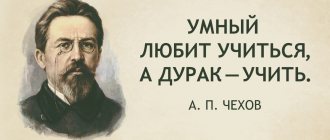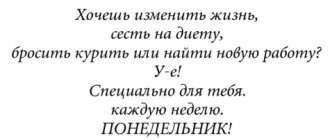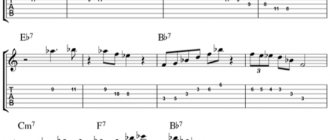In the Chinese language, as in Russian, there are stable speech patterns called proverbs and sayings. Their origin is different, but their function is quite definite - stylistic. They serve to give speech a certain style and emotional coloring. In Chinese they are called chengyu
成语
(chengyu)
and usually consist of four characters (= syllables), although there are more.
The main backbone of Chengyu
is made up of expressions from
Wenyan
文言
(wenyan)
- the ancient Chinese written language.
Since wenyan
has very little in common with modern language, it is very difficult to understand the meaning of many
chengyu
by understanding the component hieroglyphs.
You just need to study them. Therefore, knowledge of Chengyu
is a sign of education.
But not all chengyu
are aliens from ancient times. There are a lot of them that are of recent origin and therefore their meaning is clear.
Chinese proverb about the red thread
Every culture has its best examples of folk wisdom. Since ancient times, the Chinese believed that many life circumstances, especially the meeting of a man and a woman, were predetermined by fate. If two people are destined to be together, they are connected by an invisible thread that will sooner or later lead them to each other. Chinese proverbs in Russian are sometimes perceived as a mini treatise, which contains a deep philosophical meaning. Many of them are preceded by their own history or legend, which is the primary source of their appearance. There is a famous Chinese proverb about the red thread, which in writing looks like this:和情况。该线程可能会伸展或损坏,但永远不会破碎。which means “those who are destined to meet, despite Time, Place and Circumstances, are connected by an invisible red thread. The thread may stretch or tangle, but it will never break.”
Proverbs by category with meaning
In addition to dividing by origin, all statements can be divided by topic.
Beautiful
A good memory is much worse than the end of a bad brush. Writing down information is always more reliable than simply remembering it.
The world is always a little better when people do things not for themselves, but for each other.
About love
Love is not about possession, but about mutual respect.
Love from the first moment. Most often it is said about a person, but is sometimes used for things.
About friendship
If a person is a friend to everyone, then he is not a friend to anyone.
If you want to receive the heart of another, do not abandon him under any circumstances.
About labor
Any difficult task is very difficult at first (the eyes are afraid, but the hands do the work).
If people unite, then the entire Taishan Mountain can be moved. If we work together, then together we can move mountains.
About wisdom
Don't do it, you won't die. The phrase means that if a person does not do stupid things, they will not harm him.
A strong person will cope with one obstacle, but a wise person will overcome the whole path.
About the enemy
The most evil dragons are the headless ones.
Chinese idioms 成语: calling to the moon
Image: sohu.com
The Chinese language has special catchphrases and idioms. They are called chengyu (成语 chéngyǔ), which translates as "ready-made expression", and usually consist of four or eight characters. In China, they are given great importance: the country holds competitions for knowledge of chengyu among children and adults, special dictionaries are published, and foreigners must also demonstrate proficiency in Chinese idioms in the HSK exams. These expressions do more than just enliven speech. The ability to use them emphasizes a person’s education. ECD and The World of Chinese will help Chinese students understand the intricacies of using chengyu.
Since ancient times, the glow of the moon has inspired people to think philosophically and creatively. It is possible that the “sun and moon” are the very first symbols in the history of human thought. In China, the image of the night luminary is usually associated with emotional distress and homesickness, especially during the mid-autumn festival of Zhongqiujie (中秋节 zhōngqiūjié), when families get together, eat mooncakes and admire the full moon. The moon also personifies feminine beauty and the beauty of nature. Such sentiments could not help but be reflected in the Chengyu.
When you get everyone's attention
众星捧月 (zhòng xīng pěng yuè) - like the stars around the moon (meaning to be the center of attention, to be an idol).
This chengyu describes people's interest focused on one person:
他感到十分满足。 Bèi zhème duō chóngbàizhě zhòngxīngpěngyuè yíy àng de cùyōng zhe, tā gǎndào shífēn mǎnzú.
Finding himself in the center of attention of so many people, he felt like the moon among the stars , and this brought him indescribable pleasure.
When you emphasize the impermanence of existence
月满则亏,水满则溢 (yuè mǎn zé kuī, shuǐ mǎn zé yì) - The moon, having become full, will decline; water, having filled the container to the top, will overflow (example: everything that reaches its peak, then declines).
One of the main rules of Confucianism is “stick to the golden mean, avoid extremes” (中庸之道 zhōngyōng zhī dào). He is echoed by this chengyu, first mentioned in the famous Book of Changes, also known as “I Ching” (易经 Yì Jīng). The phrase reminds us that nothing lasts forever. If something has reached its peak, it will then decline:
月满则亏,水满则溢。没有什么能长盛不衰。 Yuèmǎn zé kuī, shuǐ mǎn zé yì.
Méiyǒu shénme néng chángshèng bù shuāi. The moon, having arrived, wanes; When the water fills the container, it will overflow. Nothing lasts forever.
When you talk about romance and the beauty of nature
风花雪月 (fēng huā xuě yuè) - wind, flowers, snow and moon (model romance or beauty of the four seasons).
Some chengyu mention the moon and flowers at the same time, but they may mean different things. This idiom was originally used in classical literature to describe the beauty of the four seasons of the year and sadly sublime reflections on change. Today, chengyu has become a symbol of romantic relationships:
她太忙了,没时间去考虑那些风花雪月的事。 Tā tài máng le, méi shíjiān qù kǎolǜ nàxiē fēnghuāxuěyuè de shì.
She's too busy to waste time thinking about romantic nonsense.
...and a little more about romance
花前月下 (huā qián yuè xià) - among flowers and under the moon (argument: love romance).
This chengyu either metaphorically describes a romantic relationship or literally denotes a romantic place for a couple to meet:
Please note: Ð. He spent so much time on love and romance that he didn’t have any time left to study for his exams.
When you describe someone's beauty
花容月貌 (huā róng yuè mào) - flower face, moon face (model of attractive appearance).
In some Chengyu, the image of flowers and the moon became a symbol of beauty:
她的花容月貌叫我一见倾心。 Tā de huāróng yuèmào jiào wǒ yíjiàn qīngxīn.
Just once looking at her, I became a hostage to her beauty .
When beauty is simply indescribable
闭月羞花 (bìyuè xiūhuā) - to outshine the moon and put the flowers to shame (model about an unearthly beauty).
Some girls are so beautiful that according to poets, even flowers and the moon cannot compare with them. It is believed that the first to “eclipse the moon” was Diao Chan (貂蝉 Diāochán), a semi-mythical beauty from the time of the Three Kingdoms. Flowers were put to shame by Yang Guifei (杨玉环 Yáng Yùhuán, 719 - 756), an imperial concubine of the Tang Dynasty. Both girls are included in the list of the four great beauties of ancient China.
When you describe something ephemeral
镜花水月 (jìnghuā shuǐyuè) - flowers in the mirror, the moon in the water (imagery: ghostly, unrealistic, mirage).
The image of the moon and flowers can lead to philosophical reflections. Chengyu was originally used by poets to describe their mood, but now it simply describes something illusory:
现在想来,那些荣华富贵不过是镜花水月。 Xīànzài xiǎnglái, nàxiē rónghuá fùguì búguò shì jìnghuā shuǐyuè.
All this wealth and honor now seems to me nothing more than an illusion .
When you wish for happiness
花好月圆 (huā hǎo yuè yuán) - the flowers are beautiful and the moon is full (example: wishing a happy life to newlyweds or describing a beautiful landscape).
This chengyu uses the moon and flowers as symbols of happiness and prosperity. Usually the phrase is pronounced as a wish to newlyweds.
Based on materials from The World of Chinese Prepared by Konstantin Smirnov
Previous episodes: Chinese idioms 成语: thoughts are like dewChinese idioms 成语: words cut like knivesChinese idioms 成语: think like a chess player
The painkiller is humor, and also love.
The wisest words were spoken many centuries ago. It was from them that we compiled Chinese statuses in VK.
- If you have only tasted sugar, then you won’t even understand the taste of salt. 如果您只尝试加糖那么盐就不了解味道
- Love has a right to exist if it is between souls. 如果存在于灵魂之间爱就有生存的权利
- At every age, success is assessed differently. 每个年龄段对成功的评价都不同
- There is no need to force someone to understand who doesn’t want it. 不需要做一个不想理解的人
- You can't find the right road until you get lost! 在迷路之您将找不到正确的道路
- Miracles happen, but each of them usually has a victim. 确实有奇迹发生,但每个人通常都有牺牲
- It’s not scary – it’s an obstacle we’ve already gone through. 不可怕-我们已经克服的障碍
- You need to adapt when there is no longer any way out. 如果没有出路就需要适应
- It’s a very big feat to think even slightly differently from the way you were raised. 认为与您的成长至少有一点不同是一个很棒的壮举
- Basically, the world is different from what we imagine it to be. 基本上世界与我们的想象不同
- To be stronger, you need to stick together. This is an ancient truth.
- 为了变得更强大您需要团结一致这是一个古老的真理
- A person who knows a lot has too much responsibility. 知道很多的人承担太多责任
- You don’t need to take risks and search often, but constantly. 您需要经常冒险并经常搜索
- We are afraid of our imagination. And any imagination is afraid of the unknown. 们害怕我们的想象力任何想像都害怕未知
- If you fall into unrequited love a couple of times, then you may not want to fall in love. Home
- To want to live normally, you need to stop wanting to suffer. 要想正常生活就需要停止遭受痛苦
- Don't be too naive, it could ruin you. 不要太天真它会毁了你
- Set goals and achieve them. This is the greatest happiness. 设定目标并实现它们这是最大的幸福
- Trusting only yourself is cruel, but reliable. 只信任自己是残酷的但值得信赖
- It's always more fun with a friend. And it doesn’t matter whether it’s a person or an animal. 和朋友是动物都没关系
- A cat is more difficult to train not because it is stupid, but because it does not want to do it. 训练猫比较不是因为猫很笨而是因为她不想这样做
- When goats and rams are at odds with each other, you need to call the wolf. 当山羊和公羊交战时您需要叫猫
- The secret of success is simple: if you see the light, turn towards it! 的秘诀很简单如果您看到光明就转向光明
- But evil is also necessary. In order to find out what good is...
- Men complain that they are constantly manipulated. Maybe because it's very easy










